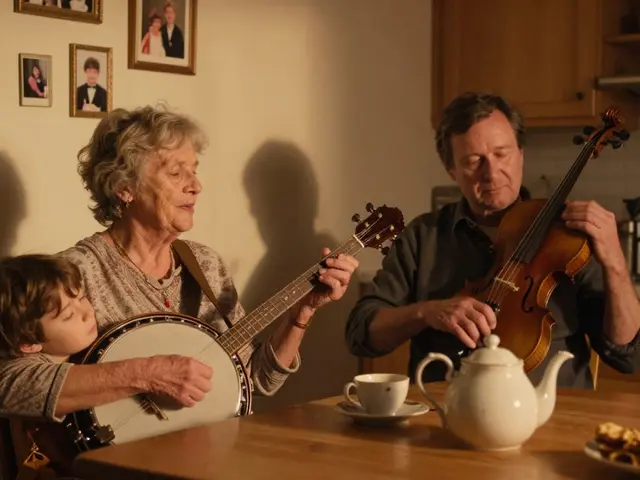The Resilient Symphony of Life
Nowadays we often live our lives at such a breakneck speed that we forget the very essence of being human - the art of witnessing beauty, feeling emotions unfold, and losing ourselves in serene moments of sweet tranquillity. This essence is what I rediscovered when I dived into the world of classical music, unplugging myself from the chaos of the modern age, if only for a brief period.
Like many of you, I used to consider classical music as something grandiosely aloof, a high-culture artefact, far removed from the trials and tribulations of everyday life. But I was mistaken. If there's one thing that having my kids, Oscar and Lucinda taught me, it's that you can never truly predict where your next lesson is coming from. On a random day, Oscar's school announced an introductory session to classical music for kids. I accompanied him, somewhat reluctantly, considering it more a chore than an exciting endeavour.
The Unseen Conductor
As the maestro waved his baton and the orchestra followed his lead flawlessly, I was introduced to a side of classical music that I had never noticed before. Each note seemed to carry a message, a stirring emotion, a powerful tale. The music punctured the veil of everyday soundtrack of drills, horns, and chit-chat, touching my soul with its dramatic crescendos and soothing adagios.
The experience was transformative for me. It felt like the way sunlight filters through leaves on a bright, sunny day - it was all around me, yet invisible; I could not hold it, yet it held me mesmerised. Remember how we often talk about 'experiencing' rather than 'listening' to music? This was it! The nuances and complexities of a symphony echoed the labyrinth of life - of struggles evolving into victories, of weakness turning into strength, and of despair flowering into hope.
From Beethoven's Ears to Your Heart
Classical music has the underestimated power to heal. Researchers continue to discover that it can lower blood pressure, reduce stress levels, improve sleep quality, and even strengthen the immune system. Yes, you read it right! Listening to classical music can bolster your body’s defence mechanism.
Creating a playlist of classical music might not make a significant change overnight. But, slowly and surely, it can calm down a runaway stress train. Among the most highly recommended pieces for stress relief are Beethoven’s Symphony No. 6 (Pastoral), Mozart’s Clarinet Concerto, and Bach’s Air on the G String. These are just the tip of the iceberg, and what lies beneath are countless melodic treasures waiting to be discovered and appreciated.
Here's a fun fact: Did you know that Beethoven, one of the greatest composers of all time, was almost completely deaf when he composed some of his most noted works? Some speculate it was because he was innately gifted, while others opine his other senses heightened to compensate for his loss of hearing. Whichever theory you lend your ear to, it's undeniable that the music Beethoven created resonates powerfully with people across generations and geographies.
The Silence Between the Notes
Classical music encourages mindfulness. As counter-intuitive as it might seem, the silence between notes is as important as the notes themselves. This silence, this pause, this wait, is where you step into a realm of deep reflection. Suddenly, you're no longer just a passive listener; you're an active participant in the music, tuning into its rhythm, its stories, and the different shades of emotions it paints.
You're absorbed, lost, and centred, all at the same time. Languages may differ, cultures may vary, but music speaks a universal language that anybody can understand. Through the ages, classical music has been a vehicle for expressing the full range of human experience, everything from profound sorrow, to explosive joy, to peaceful introspection. As the poignant saying goes, "Music has charms to soothe a savage beast." And when life feels a bit savage, there's really no better remedy than a dose of magnificent classical music.
So, the next time you find yourself getting tangled in the frustration of traffic, or the monotony of your routine, remember: There’s a symphony out there that can transform your world, even if temporarily. Instead of turning to that heavily electrified, bass-pounding track, give Pachelbel’s Canon in D or Debussy’s Clair de Lune a try. Who knows, you might just find words for your feelings in a language without any. With classical music, every note speaks, every silence listens, and you, well, you simply heal.






